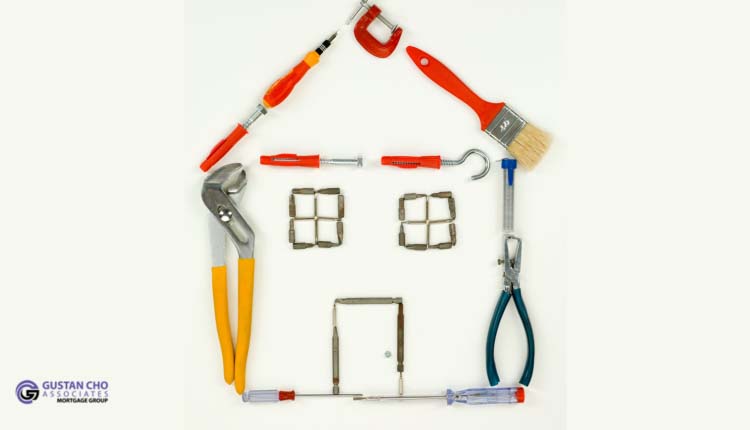How Auto Loans Affect Home Loans
How auto loans affect home loans for borrowers with a high debt-to-income ratio is a frequently asked question at Gustan Cho Associates. This article covers how auto loans affect home loans. Debt-to-income ratiosare one of the most important factors when it comes to mortgage qualification. Debt-to-income ratios are what determine how much home buyers can afford. Angie Torres, the National Operations Manager at Gustan Cho Associates, explains how mortgage underwriters calculate debt-to-income ratios and how auto loans affect home loans as follows:
Debt-to-income ratios are calculated by adding the sum of all monthly minimum payments divided by the borrower’s monthly gross income. One of the major hurdles homebuyers with higher debt-to-income ratios have been having high car payments.
The average car payment on a new vehicle is $500 per month. A $500 monthly car payment equals a $100,000 mortgage loan balance. Homebuyers looking to purchase a new home and need to buy a new vehicle strongly recommend waiting until they close on their new home loan. This article will discuss and cover how auto loans affect home loans.
How Mortgage Underwriters Calculate Monthly Debt Payments For DTI Calculations
Monthly minimum payments include the monthly minimum credit card, student loans, installment, child support, if applicable, alimony, if applicable, auto loan, and any other monthly minimum payments. Alex Carlucci, a senior loan officer at Gustan Cho Associates, explains how having a large monthly auto payment can hurt borrowers with high debt-to-income ratios as follows:
Monthly minimum payments are just a fact of life. However, with auto loans, the impact can be huge. Auto loans can hurt and skyrocket borrowers’ debt-to-income ratios.
How auto loans affect home loans is that most are $300 or more per month. This type of large monthly payment will harm debt-to-income ratios in qualifying. Most newer automobiles are larger ticket items. An average new vehicle costs $25,000. The longest an auto loan can be amortized over is seven years, unlike a home loan, which can be amortized over 30 years. A $300 per month auto loan equals a $60,000 home loan. So immediately, if you have a $300 monthly automobile payment, home buying power will be reduced by $60,000.
Home Buyer That Needs To Purchase a New Car

Getting auto financing, for the most part, is easy and streamlined—most auto finance companies, like mortgage lenders, will not request income docs such as W2s, paycheck stubs, or income tax returns. Most automobile dealerships have relationships with dozens of auto finance companies that offer financing for car buyers with no money down. One thing about automobile loans is that the payment terms, also known as the amortization schedule, are short. For a new car, the maximum a new car buyer can finance their vehicle is seven years. Dustin Dumestre, a senior loan officer at Gustan Cho Associates, explains how auto loans affect home loans and how a large auto payment can hurt your chances of getting mortgage approval as follows:
Mortgage lenders do not care about the outstanding balance of your auto loan. You can have a million dollar loan on a Ferrari or Lamborghini and it will not affect debt-to-income ratio calculations. Mortgage underwriters will go off by the monthly minimum payment to calculate your debt-to-income ratio. It is best to stretch your amortization for a long term to minimize your monthly auto payment if you have high debt-to-income ratios.
Some new vehicles, such as new SUVs, decked-out pick-up trucks, luxury sedans, and fancy sports cars, can have price tags higher than $60,000. Even a $25,000 new Honda can yield a monthly payment of $500.00. A $500.00 per month car loan payment is equivalent to a $100,000 principal and interest payment on a home loan. If you need to purchase a new car and see yourself buying a new home soon, it is greatly recommended to delay buying that new car until having closed on the home loan.
How Auto Loans Affect Home Loans When Trading In Your Car
In this section, we will discuss how auto loans affect home loans when trading in your car. You may think about trading the car in for another vehicle if you currently have a larger car loan payment and do not qualify for a home loan because of the high auto loan payment. John Strange, a senior loan officer at Gustan Cho Associates and associate contributing editor at Best VA Mortgage Loans, Inc. says the following about how auto loans affect home loans:
It does not matter how much the car loan balance is. What matters is the monthly minimum monthly payment when it comes to lenders. Consumers can have a $200,000 Lamborghini, and if the payment is $300.00 per month, this is better than having a $20,000 Honda with a monthly payment of $600.00.
See if you can get a lower monthly auto payment. Sometimes it makes sense to take a loss on a car and trade it in for a new car with a longer amortization term to reduce your monthly auto payment to qualify for a mortgage loan. Lenders will not take the balance owed but will take the borrower’s monthly payment. If you have a $500.00 per month auto payment and can buy a newer car and extend the terms to lower monthly payments, this will be a good idea since it will reduce overall debt-to-income ratios.
How Auto Loans Affect Home Loans on Borrower and Co-Borrowers
Another important thing about auto loans is if you have two people on an auto loan, such as a husband and wife as borrower and co-borrower, the monthly auto payment is counted twice for debt-to-income ratio calculations.
Case Scenario on How Auto Loans Affect Home Loans
In this section, we will cover how auto loans affect home loans if you have two borrowers on an auto loan. For example, here is a scenario of a typical homebuyer needing to get qualified and pre-approved for a mortgage loan. Suppose a husband and wife purchase a car for $50,000; the monthly payment is $700.00. If the husband goes on the auto loan, the lender will just use $700.00 per month for debt-to-income ratio calculation. Ronda Butts, a dually licensed realtor and loan officer at Gustan Cho Associates explains the following on how auto loans affect home loans:
If you are going to be purchasing a home in the near future and are buying a car, make sure you do not add a co-borrower if you do not need to. The reason is because having a co-borrower on a car note will hurt you on debt-to-income calculations when you and the same co-borrower apply for a mortgage.
If the husband adds the spouse to the car loan, and they must go on a mortgage together, the $1,400 per month is used for debt-to-income ratio calculations. How can that be when only one car is financed, and the car payment is only $700.00 monthly? Lenders use whatever monthly debts are reflected on the credit reports, whether you are the borrower, co-borrower, or cosigner. Therefore, since borrowers and co-borrowers are on the credit reports, both monthly payments that reflect on the credit reports are used to determine the debt-to-income ratios on mortgage loans by underwriters.
This guide on how auto loans affect home loans has been written and published by John Parker, an associate contributing editor for GCA Mortgage Group. and the National Managing Partner of Business Development at Gustan Cho Associates. John Parker is the Editor in Chief of Best VA Mortgage Loans.







